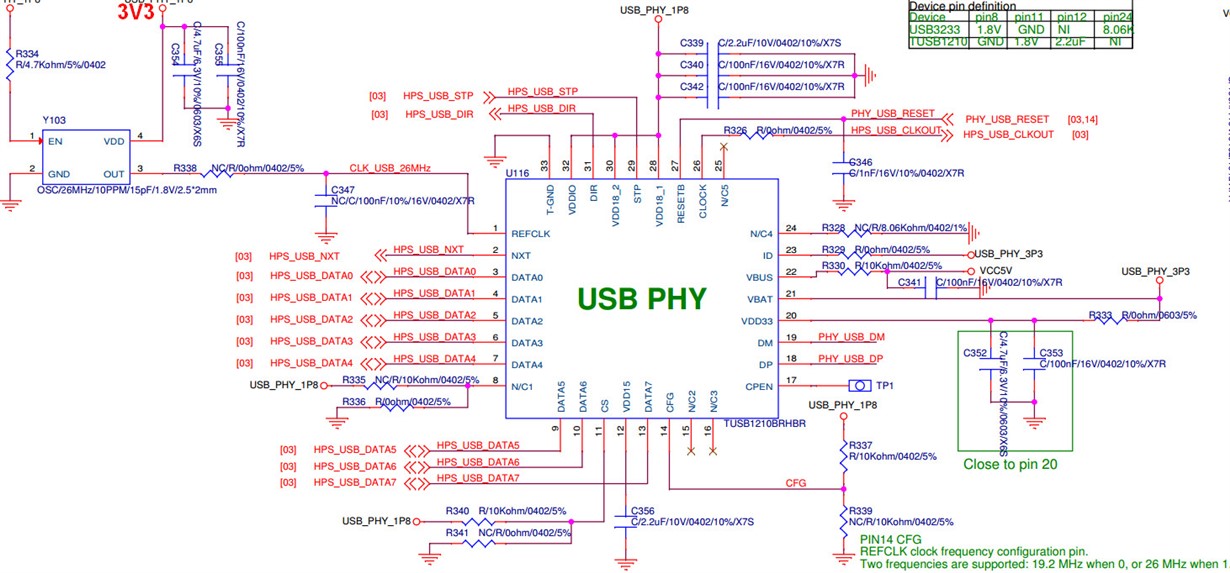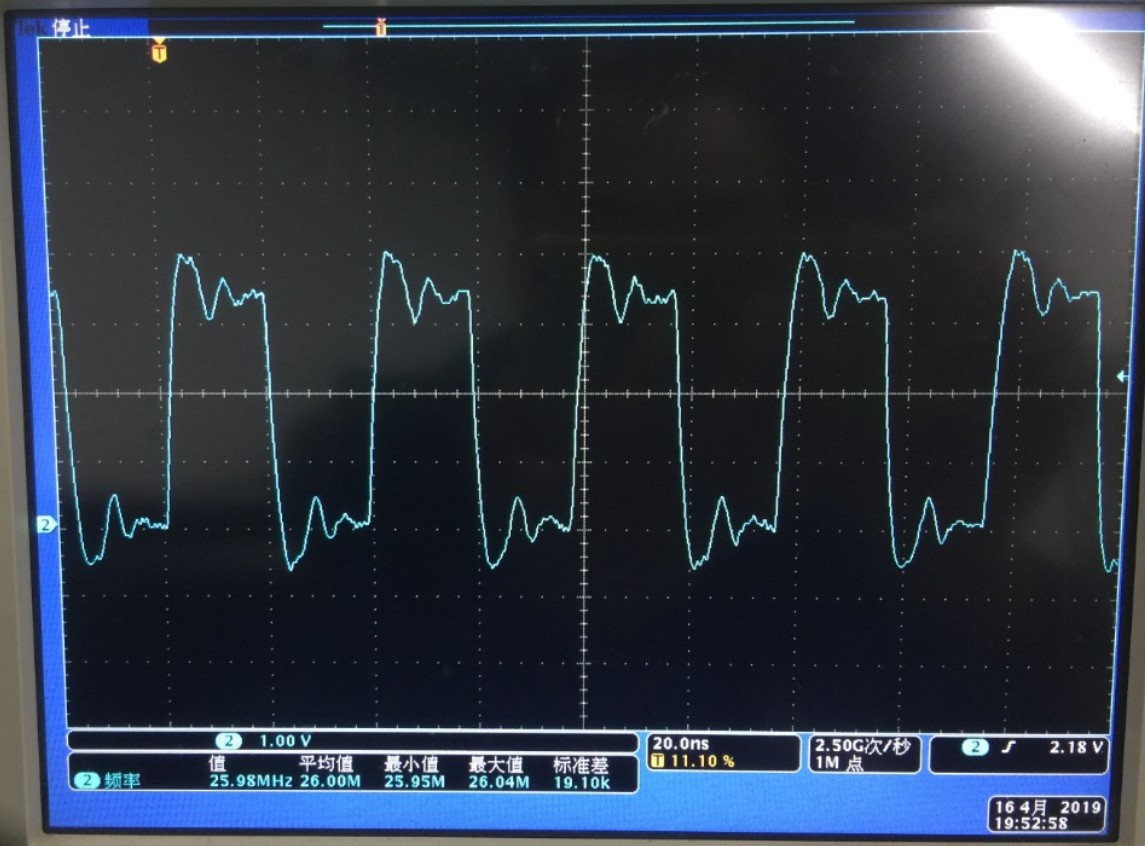Tool/software: Linux
Hi Team,
We are Linux OS, and use TI TUSB1210 reference Linux driver, but get USB no function issue.
We used Microchip USB3300 in previous project, and USB is OK.
1. Any register control difference between TI-TUSB1210 and Microchip-USB3300?
2. Any driver difference between TI-TUSB1210 and Microchip-USB3300?
3. Any check points we can verify to confirm TUSB1210 is working normally?
4. Below is our sch, please kindly help to review.
Thanks



